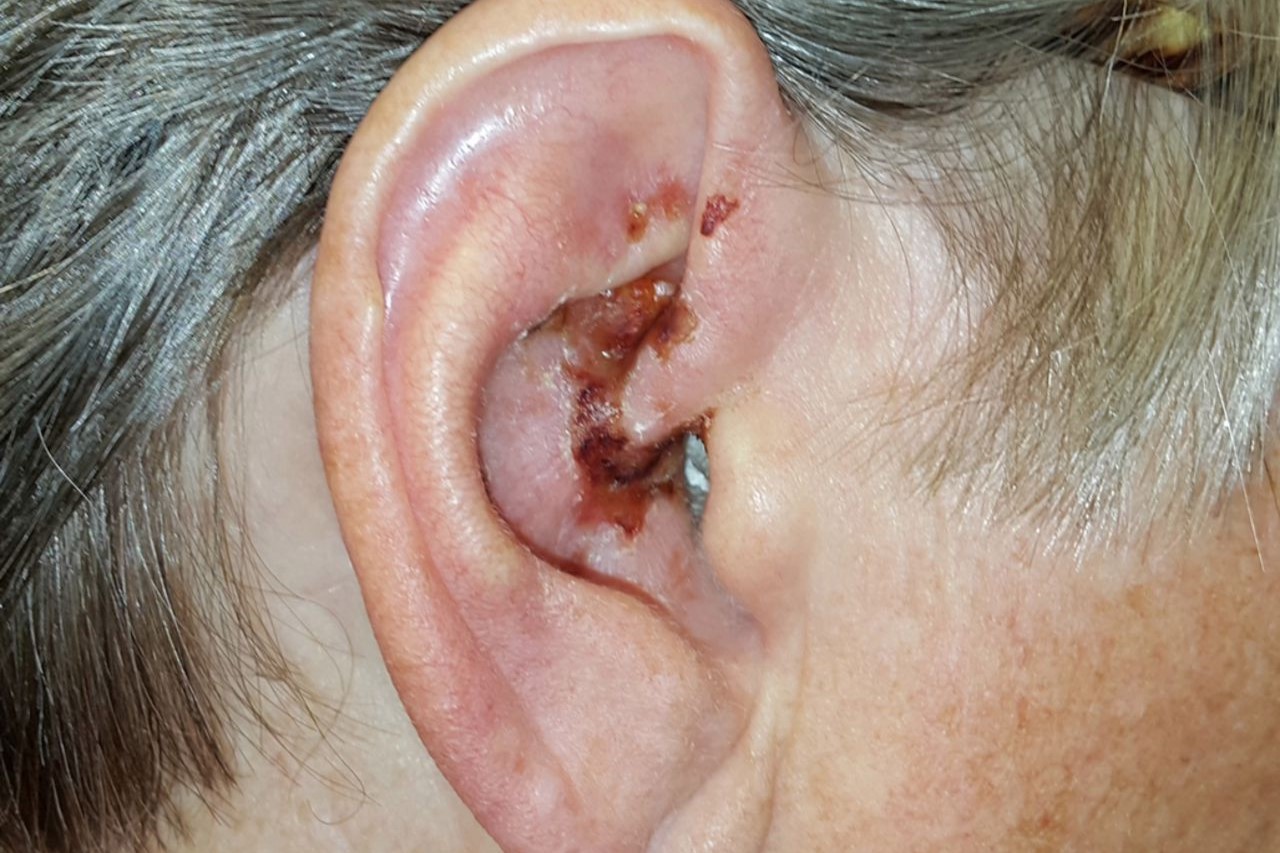
Ramsay Hunt Syndrome might sound unfamiliar, but it's a condition worth knowing about. Named after neurologist James Ramsay Hunt, this syndrome can affect anyone, though it's more common in older adults. Ramsay Hunt Syndrome occurs when the varicella-zoster virus, the same virus responsible for chickenpox and shingles, reactivates and affects the facial nerve near one ear. This can lead to a painful rash, facial paralysis, and hearing loss. Understanding the symptoms, causes, and treatments can help in early detection and management. Here are 30 facts to help you get a better grasp of Ramsay Hunt Syndrome.
Key Takeaways:
- Ramsay Hunt Syndrome is a rare condition caused by the same virus as chickenpox and shingles. It can lead to facial paralysis, painful rash, and even hearing loss. Early treatment is crucial for recovery.
- Prompt medical attention and early treatment with antiviral medications and steroids can significantly improve the chances of a full recovery from Ramsay Hunt Syndrome. Pain management and physical therapy also play a key role in the recovery process.
What is Ramsay Hunt Syndrome?
Ramsay Hunt Syndrome (RHS) is a rare neurological disorder caused by the varicella-zoster virus, the same virus responsible for chickenpox and shingles. This condition can lead to facial paralysis and a painful rash around the ear or mouth. Let's dive into some fascinating facts about Ramsay Hunt Syndrome.
-
Named After a Neurologist: Ramsay Hunt Syndrome is named after James Ramsay Hunt, an American neurologist who first described the condition in 1907.
-
Caused by Reactivation of Varicella-Zoster Virus: The syndrome occurs when the varicella-zoster virus, which remains dormant in the body after chickenpox, reactivates.
-
Affects Facial Nerves: This condition primarily affects the facial nerve, leading to paralysis on one side of the face.
-
Painful Rash: A hallmark of RHS is a painful rash that appears around the ear, mouth, or on the face.
-
Hearing Loss: Some individuals with RHS experience hearing loss in the affected ear.
-
Vertigo: Dizziness or vertigo is another common symptom, making balance difficult.
-
Tinnitus: Ringing in the ears, known as tinnitus, can accompany the syndrome.
-
Taste Alteration: Some people report changes in their sense of taste, particularly on the front two-thirds of the tongue.
-
Eye Problems: In severe cases, the inability to close the eyelid on the affected side can lead to eye dryness and damage.
-
Diagnosis Through Symptoms: Diagnosis is often based on the combination of facial paralysis and the characteristic rash.
How Common is Ramsay Hunt Syndrome?
Ramsay Hunt Syndrome is relatively rare, but understanding its prevalence can help in recognizing and treating it effectively.
-
Less Common Than Bell's Palsy: RHS is less common than Bell's Palsy, another condition causing facial paralysis.
-
Affects Adults More: It primarily affects adults, particularly those over 60 years old.
-
Immunocompromised Individuals at Higher Risk: People with weakened immune systems are more susceptible to developing RHS.
-
Annual Cases: Approximately 5 out of every 100,000 people are diagnosed with RHS each year.
-
No Gender Preference: The syndrome affects men and women equally.
Symptoms and Complications
Understanding the symptoms and potential complications of Ramsay Hunt Syndrome can aid in early detection and treatment.
-
Facial Weakness: Sudden weakness or paralysis on one side of the face is a key symptom.
-
Ear Pain: Severe ear pain often precedes the rash and paralysis.
-
Blisters: Fluid-filled blisters may appear in the ear canal, on the earlobe, or on the roof of the mouth.
-
Difficulty Speaking: Facial paralysis can make speaking and eating challenging.
-
Long-term Effects: Some individuals may experience long-term facial weakness or spasms.
-
Postherpetic Neuralgia: Persistent nerve pain, known as postherpetic neuralgia, can occur even after the rash heals.
-
Corneal Damage: Inability to close the eye can lead to corneal damage and vision problems.
Treatment and Recovery
Effective treatment and understanding the recovery process are crucial for managing Ramsay Hunt Syndrome.
-
Antiviral Medications: Early treatment with antiviral medications like acyclovir can help reduce symptoms.
-
Corticosteroids: Steroids are often prescribed to reduce inflammation and swelling.
-
Pain Management: Pain relievers and anti-inflammatory drugs can help manage pain.
-
Physical Therapy: Facial exercises and physical therapy can aid in recovery of facial movement.
-
Eye Care: Lubricating eye drops and protective eyewear are essential to prevent eye damage.
-
Hearing Aids: Hearing aids may be necessary for those with significant hearing loss.
-
Recovery Time: Recovery time varies; some people recover fully within a few weeks, while others may take months.
-
Early Treatment is Key: Prompt medical attention can significantly improve the chances of a full recovery.
Final Thoughts on Ramsay Hunt Syndrome
Ramsay Hunt Syndrome (RHS) can be a challenging condition, but understanding it helps manage symptoms better. RHS occurs when the varicella-zoster virus affects the facial nerve, leading to facial paralysis and a painful rash. Early diagnosis and treatment improve outcomes, so if you notice symptoms, seek medical advice promptly. Antiviral medications, steroids, and physical therapy are common treatments that can aid recovery.
Living with RHS might be tough, but support from healthcare professionals and loved ones makes a big difference. Stay informed about your condition, follow your treatment plan, and don't hesitate to ask for help when needed. Knowledge is power, and being proactive in your care can lead to better health and quality of life. Remember, you're not alone in this journey.
Frequently Asked Questions
Was this page helpful?
Our commitment to delivering trustworthy and engaging content is at the heart of what we do. Each fact on our site is contributed by real users like you, bringing a wealth of diverse insights and information. To ensure the highest standards of accuracy and reliability, our dedicated editors meticulously review each submission. This process guarantees that the facts we share are not only fascinating but also credible. Trust in our commitment to quality and authenticity as you explore and learn with us.
